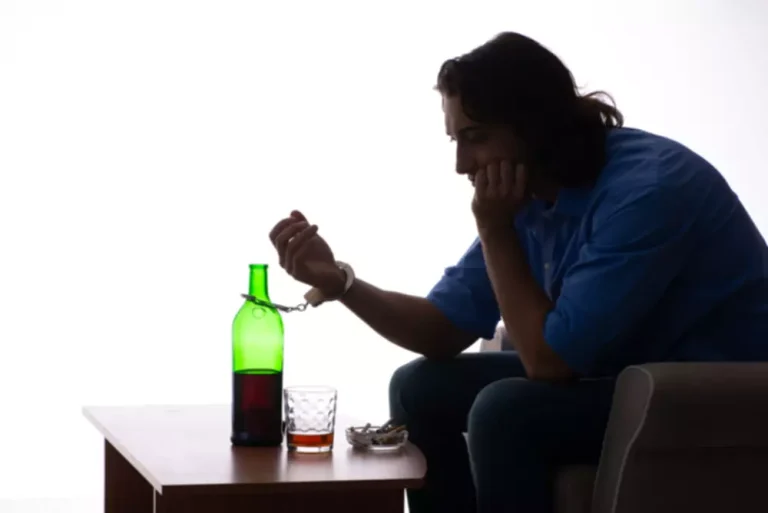
There are many effective treatments for anxiety and alcohol use disorders, including ongoing individual therapy, group therapy, prescribed medications, or a combination of these methods. People with generalized anxiety or panic disorder are more likely to develop unhealthy drinking behaviors around the same alcohol and panic attacks time that they start having symptoms of their anxiety-related mental health condition. Dr. Schacht recommends checking in with yourself about why you’re drinking. Is it because you’re genuinely enjoying time with your friends or family, or are you trying to relieve taxing feelings you’ve been dealing with?

Alcohol and anxiety: can booze trigger panic attacks?
Be aware of the alcohol content of what you’re drinking and adjust how much you drink based on this knowledge. Even when the person is unconscious or stops drinking, the stomach and intestines https://ecosoberhouse.com/ continue to release alcohol into the bloodstream, and the level of alcohol in the body continues to rise. It’s not necessary to have all the above symptoms before seeking medical help.
Alcohol and Anxiety − Does Drinking Worsen Anxiety?
This means that cutting out alcohol can help – but often further action is required in order to take full control of your condition. In this case, alcohol can be especially harmful, potentially triggering and exacerbating panic attacks. While for some people the occasional drink is not harmful, others find that a single sip of alcohol is enough to significantly worsen their anxiety. All types of anxiety disorders need to be addressed with therapies, such as cognitive-behavioral therapy (CBT), to identify triggers, learn practical coping skills, and address underlying issues causing or worsening your anxiety. Alcohol works as “liquid courage” to face the situation without feeling fearful, overwhelmed or inadequate.

Why Alcohol Use May Increase Risk Of Panic Attack
- Recommendations to treat both anxiety and AUDs therefore appear warranted on both theoretical and empirical grounds.
- This exclusion means, however, that treatment providers must use clinical judgment when prescribing these medications to comorbid patients.
- The results of this study suggest that the link between anxiety and AUDs was not direct but instead may have been a consequence of those other variables studied.
- Panic attacks have many variations, but symptoms usually peak within minutes.
- Together, these results suggest that women may be more likely to rely on alcohol to manage anxiety.
In fact, research suggests that around 25% of people with panic disorder also have an alcohol dependence. Psychiatrists are doctors who have specialized training in diagnosing and treating complex mental health conditions through medication management. If you are experiencing symptoms of a mental health condition such as depression, anxiety, bipolar disorder, PTSD, or similar, a psychiatrist may be a good place to start. About 20 percent of people with social anxiety disorder also suffer from alcohol dependence. If you are concerned that you are experiencing panic attacks as a result of your alcohol consumption, it is recommended that you cut down or completely stop drinking. When you experience alcohol-induced panic attacks, this cycle can become even more frightening and potentially result in a long-term panic disorder.
Can alcohol make anxiety worse?
- Additional research and exploration of additional third variables therefore is necessary to more clearly appraise their unique and interactive influence on the relationship between these disorders.
- If your brain activity becomes overactive and you aren’t under the dampening effects of alcohol, you may have a panic attack or a seizure from the alcohol abuse.
- National surveys demonstrate that people with an anxiety disorder are two to three times more likely to develop an alcohol use disorder (AUD).
- However, coordination among providers and between facilities becomes a critical issue with parallel treatments when they are not colocated.
- Anxiety disorders are a potential comorbidity of alcohol use disorder (AUD).
- In fact, such difficulties in everyday living are so intertwined with heavy use that they are reflected in the DSM–IV criteria for AUDs (APA 2000).
When you drink alcohol regularly for a long time, your brain will begin to produce stimulating hormones in higher-than-normal levels. For instance, drinking alcohol can cause your heart rate and blood pressure to temporarily increase. Over time, excessive use of alcohol can cause strain on your body that manifests as acute or chronic health conditions that can include liver and cardiovascular disease. In addition to adjusting standard pharmacotherapy and psychotherapy protocols for anxiety and AUDs when treating comorbid clients, it also is crucial to apply these methods in a way that produces the best outcomes for both disorders.
Who Is at Risk of Having Panic Attacks When Quitting Alcohol?

The two often create a cycle that’s hard to break, whereby the onset of one is a trigger for the other. If a person has concerns about alcohol use or anxiety, they can speak with a doctor to find out the best ways to solve these issues. Nowadays, the internet can also offer tools for keeping track of drinking habits, setting goals, and providing relapse-prevention techniques. A doctor may also suggest additional treatment options, such as counseling or joining a support group. People need to speak with a doctor if they are experiencing the above effects due to alcohol. If your treatment plan includes medication, your psychiatrist will prescribe and manage it.
- They might also consume alcohol at the gathering to feel more relaxed or less inhibited around others.
- The nervous system is activated causing heart palpitations, trembling, shortness of breath, excessive sweating, lightheadedness, and other uncomfortable sensations that can make a person feel like they are losing control physically and emotionally.
- After you’ve spent time adjusting to your lifestyle changes, assess your situation.
- Speaking with friends and family can help them prepare to support you when a panic attack strikes.
What the DSM-5 Says About Addiction
- This is when a male rapidly consumes five or more alcoholic drinks within two hours or a female consumes at least four drinks within two hours.
- Our psychologist offers individually personalized cognitive behavior therapy for clients in a private upscale setting.
- Few people may realize it, but you can actually be allergic or intolerant to alcohol.
- When you have anxiety and an alcohol use disorder at the same time, you may be able to treat them simultaneously.
- If you are the kind of person who benefits from shared experiences and community, then a 12-Step support group may be an excellent fit.





Leave a Comment